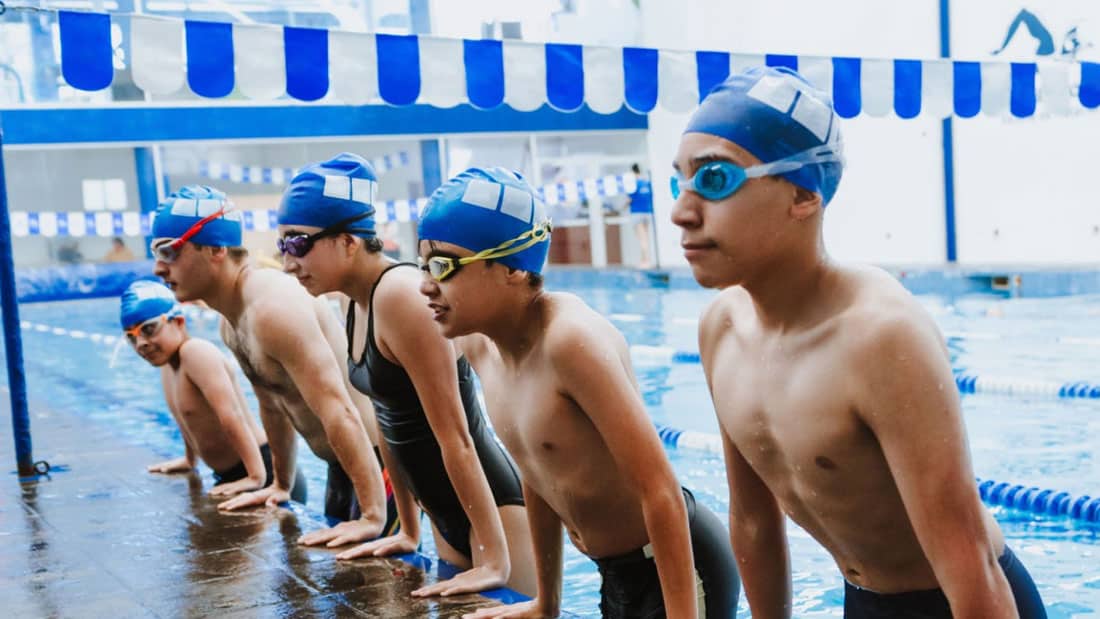The Most Powerful Form of Punishment for Athletes
In the world of high school sports, losses are often blamed on a lack of effort, hustle and toughness.
Tony Holler thinks that’s mostly B.S.
Holler, the head track coach at Plainfield North High School (Illinois) and creator of the popular Feed the Cats training system, believes athletes always want to win.
“I’ve never witnessed a low-effort football game,” says Holler.
“Kids, in my opinion, will always go out and try to win games.”
Naturally, he also hates the idea of physically punishing athletes with endless Sideline Gassers or Up-Downs to make them pay for these perceived sins. It goes against his core philosophy of high performance: “Never let today ruin tomorrow.” If anything, such punishment will probably make them play worse in their next game or practice.
He’s not so ignorant as to believe young athletes will always live up to the team standard 100% of the time, however. But when you don’t believe in physical punishment, how do you discipline kids who could benefit from a change in attitude?
It starts with the coach-player relationship. You can run a kid all day, but if he doesn’t respect you as coach, that’s not going to change just because you got him really tired.
“I believe if I’m really disappointed with a kid, first of all, hopefully that kid respects me enough that when I give him a look of disappointment, it affects him. I don’t know about you, but the strongest parenting in the world (to me) is simple disapproval. When I disappointed my mom, it made me hurt. I didn’t need to be grounded,” says Holler.
“So, if we establish those bonds of respect, not just kid respecting the coach, but the coach respecting the kid, (then) I don’t think you’re going to have many low-effort days.”
When punishment is warranted, Holler’s a firm believer in briefly removing their opportunity to play and allowing them a chance to adjust their own attitude.
“If you need to prove a point, you simply take away their opportunity to play. That doesn’t mean—everyone’s like, ‘Suspend him for a game!’—I hate that,” says Holler.
“’Simply (take them) out of the game. ‘OK, that was a bad effort, you’re not going in until you can convince me that you’re going to be a high-effort guy.’ It’s usually after about one play that they say, ‘Coach, coach, it’ll never happen again.’ You won. You don’t have to suspend him.”
“Or in a practice, ‘Get in for Joe, he doesn’t want to play hard today.’ And you just let Joe kind of watch for a while. And you don’t kick him out of practice. I mean, you can, but it can also be 10 minutes and then you go over and treat him with respect and say, ‘Joe, are you ready to give a big effort?’ ‘Yes, coach.’ Bam! You just won that day with that kid.”
If a coach finds themselves believing the effort of their athletes is consistently lacking, they should consider how their own actions might be affecting that.
Are the athletes so mentally and physically exhausted from grueling practices and workouts that they’re burnt out? Would they be able to play faster and harder if the playbook was simplified? Are there changes to the schedule or practice plan that could increase their sleep, rest and recovery?
These ideas are the pillars of Holler’s Feed the Cats philosophy, which is why he believes he rarely has to discipline his athletes in the first place.
“I think the best teams have players that really, really want to play for their coach,” says Holler.
“If you have to punish them to get them to do that, you’ve already lost the war.”
Photo Credit: jpbcpa/iStock
READ MORE:
RECOMMENDED FOR YOU
MOST POPULAR
The Most Powerful Form of Punishment for Athletes
In the world of high school sports, losses are often blamed on a lack of effort, hustle and toughness.
Tony Holler thinks that’s mostly B.S.
Holler, the head track coach at Plainfield North High School (Illinois) and creator of the popular Feed the Cats training system, believes athletes always want to win.
“I’ve never witnessed a low-effort football game,” says Holler.
“Kids, in my opinion, will always go out and try to win games.”
Naturally, he also hates the idea of physically punishing athletes with endless Sideline Gassers or Up-Downs to make them pay for these perceived sins. It goes against his core philosophy of high performance: “Never let today ruin tomorrow.” If anything, such punishment will probably make them play worse in their next game or practice.
He’s not so ignorant as to believe young athletes will always live up to the team standard 100% of the time, however. But when you don’t believe in physical punishment, how do you discipline kids who could benefit from a change in attitude?
It starts with the coach-player relationship. You can run a kid all day, but if he doesn’t respect you as coach, that’s not going to change just because you got him really tired.
“I believe if I’m really disappointed with a kid, first of all, hopefully that kid respects me enough that when I give him a look of disappointment, it affects him. I don’t know about you, but the strongest parenting in the world (to me) is simple disapproval. When I disappointed my mom, it made me hurt. I didn’t need to be grounded,” says Holler.
“So, if we establish those bonds of respect, not just kid respecting the coach, but the coach respecting the kid, (then) I don’t think you’re going to have many low-effort days.”
When punishment is warranted, Holler’s a firm believer in briefly removing their opportunity to play and allowing them a chance to adjust their own attitude.
“If you need to prove a point, you simply take away their opportunity to play. That doesn’t mean—everyone’s like, ‘Suspend him for a game!’—I hate that,” says Holler.
“’Simply (take them) out of the game. ‘OK, that was a bad effort, you’re not going in until you can convince me that you’re going to be a high-effort guy.’ It’s usually after about one play that they say, ‘Coach, coach, it’ll never happen again.’ You won. You don’t have to suspend him.”
“Or in a practice, ‘Get in for Joe, he doesn’t want to play hard today.’ And you just let Joe kind of watch for a while. And you don’t kick him out of practice. I mean, you can, but it can also be 10 minutes and then you go over and treat him with respect and say, ‘Joe, are you ready to give a big effort?’ ‘Yes, coach.’ Bam! You just won that day with that kid.”
If a coach finds themselves believing the effort of their athletes is consistently lacking, they should consider how their own actions might be affecting that.
Are the athletes so mentally and physically exhausted from grueling practices and workouts that they’re burnt out? Would they be able to play faster and harder if the playbook was simplified? Are there changes to the schedule or practice plan that could increase their sleep, rest and recovery?
These ideas are the pillars of Holler’s Feed the Cats philosophy, which is why he believes he rarely has to discipline his athletes in the first place.
“I think the best teams have players that really, really want to play for their coach,” says Holler.
“If you have to punish them to get them to do that, you’ve already lost the war.”
Photo Credit: jpbcpa/iStock
READ MORE:










